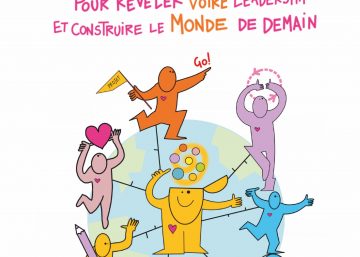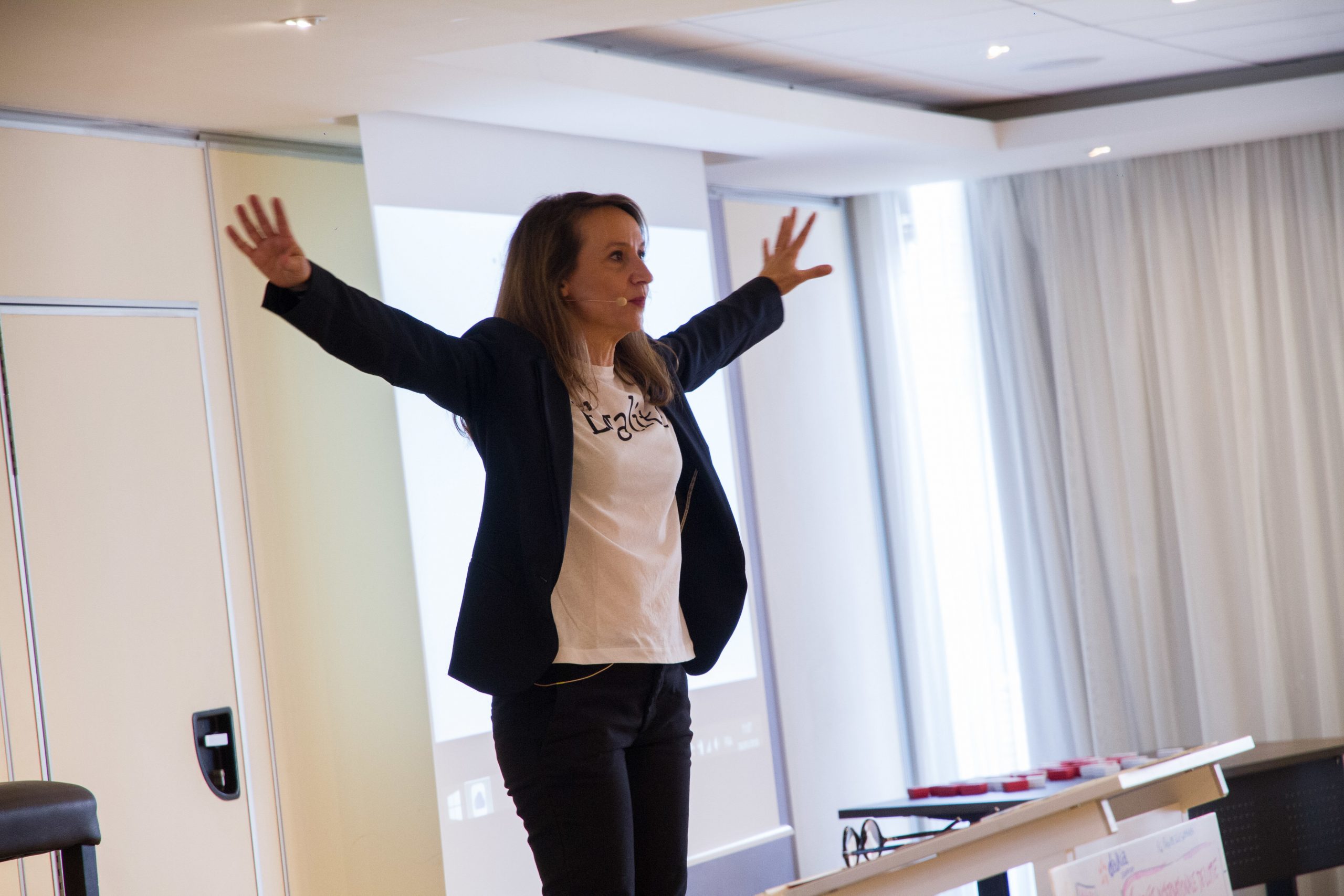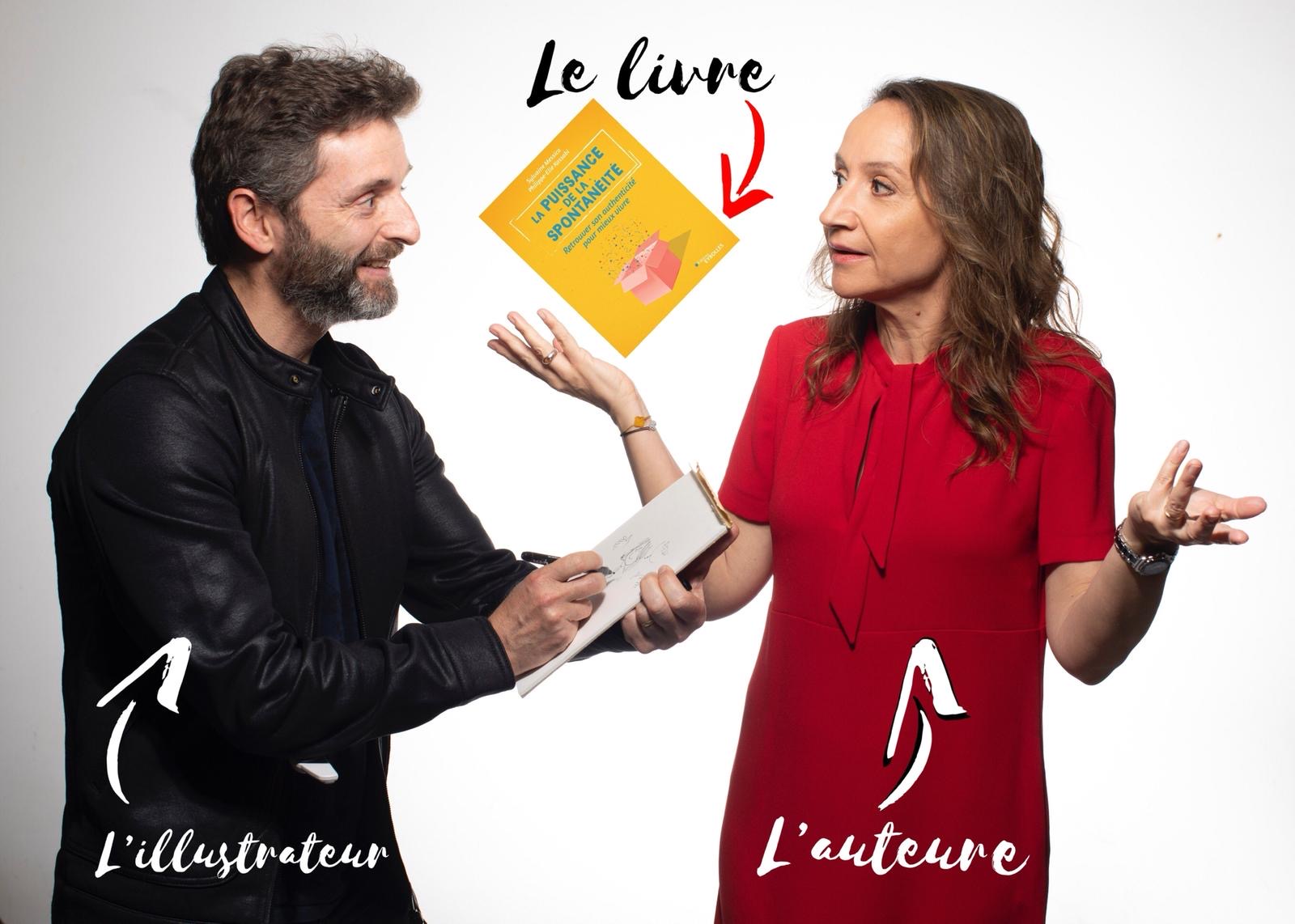(article written in 2009)
Improvisation: school of life
Improv is not just a training school for atypical actors, it is a school of life, because it is the school of adaptation. All the principles applying the principles of improv revolve around adaptation. This is why improvisation is a current response that everyone needs to overcome their difficulties. In some cases, this wants to be the school of cooperation ... There, it is specific to coaches and players, because I have sometimes noticed a performance game that does not go in the direction of supporting the other .
Improv: collaboration and benevolence
The “improvisation” revolution is opposed in its pedagogy to classical theater, which she likes because it values all these authors and can even make them discover to new generations. Improvisation has come to disturb classical theater in its ancestral and hierarchical status, defending a work written with a leading role and secondary roles. I remember we invited a classical theater teacher to one of our improv matches who used his influences to prevent our improv workshop from opening in the same place as his acting classes. After watching 5 minutes of the improv match, he stood up, as if to show everyone his superiority. Today, he uses the term "impro" to sell his lessons ...
Applied improvisation: an innovative solution for organizations
Do you also see the relationship between theater and business or organization? A first role, secondary roles, processes… It works, to the limit: the necessary iterative adaptation, because we are constantly evolving and very quickly, and that is why agility has become essential.
I am proud to have been among the creators who have professionalized applied improvisation at the international level, the result of several years of exchanges, training between peers, mutual investment. This term “applied improvisation” means that we use the tool that is improvisation to achieve a concrete, operational and professional objective, which excludes the act of putting on a show. The tool is used for other strategic and operational purposes.
I merge improvisation with training, to better sell, negotiate, manage, speak up, decide, change, create and innovate, be an optimistic leader, be a strategist! Other of my peers apply it to sustainable development, to treat patients, to develop education ... This obviously implies that the practitioner in "applied improvisation" has an expertise other than improvisation, in training, and in the profession he trains. Applied improvisation is a high pedagogy because we are on an educational tool and another expertise. We are working in the same direction. It is not a question of coming to make improvisation to a group in a company, because that is improvisation without added value.
Involved in the evolution of our world
When we are expert in "Applied improv or applied improvisation", we are involved in a real international group which by its creativity and its multiple intelligences deploys a strategy to improve our world. We defend much more than a simple business, namely values and a goal!
Happy to create the French group of experts in applied improvisation, after a few years of attempts. Our point of progress in France, cooperation, compared to our American or European friends.
Applied improvisation is effective immediately, lasting, individual and collective. Today, I even develop trainings in optimism, leadership, agility, among others by relying on the application of improvisation, and obviously other concepts (shhh :).
What is the profile of the client who wants to train his teams with improvisation? Innovative, curious, open, courageous, visionary, dynamic and humanist. Doesn't that remind you of the qualities of leaders whose history marks us positively or just great men?
Improvisation is not a fad, it is a very delicate know-how, it is about getting learners out of their comfort zones, it requires a lot of benevolence, psychology, expertise and ethics.
Manage uncertainty with agility
Complexity, transformation, everything goes faster and only the most agile find the keys. We have to deal with this difficult situation, and improv applied to all kinds of issues offers an appropriate response. Getting out of your comfort zone and finding new skills is the quality of those who know how to get out of a difficult situation such as a crisis. We can even speak of an “improvisational enterprise”, a paradigm adapted to the situation today.
Listening, a strategy that always pays off
Listening is at the center of the adaptation process.
Listening is the fact of listening, of hearing and above all of accepting, in order to adapt and then build with the other and not against him (tool: “Yes and ..” vs “Yes but … ”). This is what we are developing. This posture of efficiency is not innate, it is acquired through continuous work, a logic of increasing competence on a regular basis. Developing your team on a regular basis with relevance allows you to reduce costs, it is a benevolent provocation to tell managers that the investment in agility is played out in people!
My journey : Theatrical improvisation at 17, commercial at 19, I led the two courses in parallel and in 1996, I created a school and a league of theatrical improvisation, we had more than 50 students and players. I wrote a Master's thesis in 2002 on improvisation applied to talent development. The same year, I became a trainer-consultant, then a coach, then a lecturer. I created a lot of tools and built the research and development of applied improvisation at the international and French level. I even organized the international convention of practitioners of applied improvisation ...
2016, I start writing the Power of spontaneity (Eyrolles), released in May 2019!
You can find this article, comment on it and like it on LinkedIn ![]()









